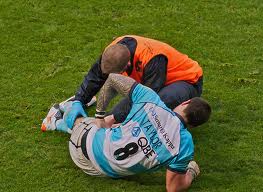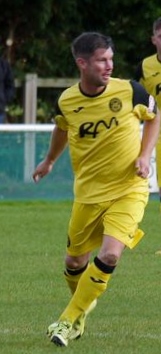Main Menu
Latest Blog Entry
User login
Recovering from injury: it’s the athlete stupid!
“Treat the athlete first, the injury second”
 Bill Knowles. This has been highlighted recently with 2 of the athletes I coach.
Bill Knowles. This has been highlighted recently with 2 of the athletes I coach.
Case 1: 14 yr old girl who trains weekly with me strains calf in school match. Mum rings up and asks for advice that day.
Pass her on to Sarah (physiotherapist) who gets background information and sends PRICE guidelines for acute injury treatment.
Booked into see Sarah 72 hours post injury.
The girl’s hockey coach rings me the next day and we talk about upcoming schedule, conflicts, potential cause of injury. We talk about reassuring the girl about “pressure of selection” and getting healed is the main priority.
Mum talks to the school about being off games. The teachers know we are looking after rehab. The advantage of all being based in Devon, is that we know each other.
Sarah assesses/ treats girl. I am present and we talk about schedule. We then spend 30 minutes talking about what CAN be done over the next week: including how to use crutches, how to maintain cv fitness, what stretches to do, upper body work, trunk work.
1 week later: Sarah assesses girl, does some soft tissue work, looks at standing, moving, balancing. Then passes to me and I progress the movement challenges, show more trunk work, upper body dumbbell work (in standing) and set schedule for return to run drills.
Whilst the girl is far from ecstatic, she is at least happy she has a plan: coach, mum, school, physio and me have all been involved and contributed to rehabilitation/ return to train schedule. She will be at her club practicing skills next Tuesday.
Case 2:
Full time, senior athlete strains quad. Doesn’t inform me, is away on camp, gets acute treatment from physio there and told to rest. Sent away from camp and told to rest. 2 weeks of no training is detraining.
If an athlete gets injured, then we as coaches (and here is where physios need to be coaches, rather than just patcher uppers) need to understand what is going on in their minds.
If athletes are used to training 2-3 hours a day and being involved with other athletes, we need to recognise that and programme the rehab accordingly.
Client Testimonials
 Scott Rogers: Footballer
Scott Rogers: Footballer
I ruptured my ACL back in August 2015 playing football for Tiverton Town FC. Not only have I just returned to play again less than a year later with my knee feeling as good as it did prior to my injury, but my my body in the whole feels like it was 10 years ago […]
More


Comments
[…] Hockey: Isca Hockey Club “Recovering from injury” […]
[…] of athletes have bad experiences when injured (see here for two contrasting stories of injured athletes), it is our job to communicate to help them manage […]
[…] was almost seamless. Sarah and I managed to put a lot of these points into practice to help a young hockey player return from injury very […]